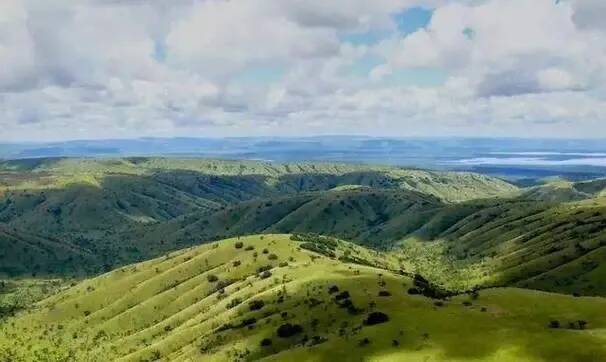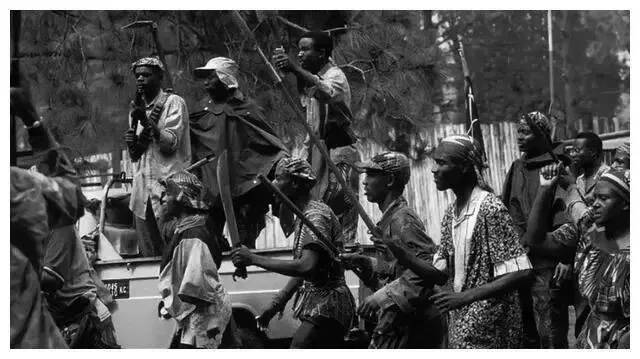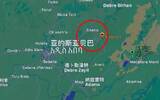Introduction to Lake Kivu, a coffee producing area in Rwanda, Africa
African coffee is well known in the global coffee market because the African country Ethiopia is recognized as the birthplace of coffee, and there are many excellent coffee producing countries, such as Rwanda, which is known as the "country of a thousand hills".

Coffee was introduced to Rwanda by German missionaries in 1904, and coffee cultivation began to flourish when it became the only income-earning crop for small farmers since 1930. It continued to grow in the 1960s and 1980s and reached an unprecedented peak in 1986.
However, in 1994, the genocide occurred in Rwanda, which claimed nearly 80 to 1 million lives, the country's demographic structure changed greatly, the economy was on the verge of collapse, and it became one of the poorest and most needy countries in the world at that time. Western countries then raised large amounts of money to help Rwanda rebuild.

The then president, Paul ∙ Kagame, believed that the country's economic lifeline lay in agriculture and understood the potential of coffee. With international aid and his strong support, coffee became a key industry to revitalize the economy in Rwanda. Through the introduction of the Pearl Project (PEARL) proposed by the United States, the purpose of this program is to promote agricultural improvement, increase farmers' incomes and achieve sustainable development in Rwanda. And participate in major global coffee fairs, promote national brands, rely on excellent cups to enter the boutique coffee market, becoming the third African producer to take pride in producing boutique coffee after Ethiopia and Kenya.
In addition, the production of high-quality coffee depends on the country's topography and climate. Rwanda is located on the East African Plateau in east-central Africa and has an extraordinary variety of biological species. there are many wild animals scattered in Rwanda's volcanoes, mountain rain forests and vast plains.
With an average elevation of 1600 meters, Rwanda is mountainous and is known as the "country of a thousand hills". It has five volcanoes, many lakes and many rivers, forming the source of the Nile. The country is close to the equator and has a tropical plateau climate, but the temperature is lower than that of typical equatorial countries, with an average temperature of 25-28 ℃. In Rwanda, February to June, September to October is the rainy season, and the rest is the dry season, with an average annual rainfall of 1200-1600 mm. These natural conditions are very suitable for coffee growth.
Coffee producing areas are divided by provinces, mainly divided into Muhazi Muhazi, Lake Kivu Kive and Weilonga Virunga area, and the harvest time is usually from March to August.
Among them, Lake Kivu Kive is better known, where Lake Kivu is the highest lake in Central Africa and one of the great lakes in Africa, located on the border between Rwanda and the Democratic Republic of the Congo, in the Great Rift Valley of East Africa. The lake is surrounded by mountains and the 3470-meter-high Nyiragongo volcano on the north bank. Volcanoes and lakes can create some unique microclimate for the region.
The country is mainly produced by small farmers, and the ripe coffee cherries are collected and sent to the treatment station every year during the harvest period. In the Kive producing area of Lake Kivu, there are many well-known washing stations, such as Twumba washing station.
The Twumba washing station is located in western Rwanda, near the Nyungwe Forest National Park, and is planted between 1800 and 2200 meters above sea level, where the annual rated temperature is 18 °C.
At that time, Yandagiye Marthe found that there was good coffee grown here, but it was too far from the washing treatment station, so he chose to build a washing treatment station here to support the development of local farmers, improve the local agricultural system and provide jobs for local women, who currently employ nearly 90% of the staff. Twumba Water washing Station became famous in 2018 and won the first place on Rwanda's COE with a score of 90.53 that year.
Important Notice :
前街咖啡 FrontStreet Coffee has moved to new addredd:
FrontStreet Coffee Address: 315,Donghua East Road,GuangZhou
Tel:020 38364473
- Prev

Downtime for half an hour! The ancient tea free activity was accused of being "impossible to enter at all"!
▲ Click to pay attention| Daily Boutique Coffee Culture Magazine Coffee Workshop The day before yesterday, tea beverage brand Gu Ming launched a milk tea 9.9 drinking event, which lasted for half a month. In order to attract more consumers to pay attention to the event, starting today, the brand will regularly issue 500,000 free coupons on the Mini programs to give this event a 9.9 discount
- Next

Distance 55 kilometers! War is closing in on the Ethiopian capital
According to local media reports in Ethiopia, fierce fighting broke out between the Fano forces and the Ethiopian Defense Forces and militiamen forming the grand coalition government. Moreover, the battle took place only 55 kilometers from Addis Ababa, the capital of the country. Since the Ethiopian government declared a state of emergency, Amhara
Related
- What grade does Jamaica Blue Mountain No. 1 coffee belong to and how to drink it better? What is the highest grade of Blue Mountain coffee for coffee aristocrats?
- What are the flavor characteristics of the world-famous coffee Blue Mountain No. 1 Golden Mantelin? What are the characteristics of deep-roasted bitter coffee?
- Can I make coffee a second time in an Italian hand-brewed mocha pot? Why can't coffee be brewed several times like tea leaves?
- Hand-brewed coffee flows with a knife and a tornado. How to brew it? What is the proportion of grinding water and water temperature divided into?
- What is the difference between Indonesian Sumatra Mantinin coffee and gold Mantinin? How to distinguish between real and fake golden Mantelin coffee?
- What does bypass mean in coffee? Why can hand-brewed coffee and water make it better?
- Unexpected! Ruixing Telunsu lattes use a smoothie machine to foam milk?!
- % Arabia's first store in Henan opens into the village?! Netizen: Thought it was P's
- Does an authentic standard mocha coffee recipe use chocolate sauce or powder? Mocha Latte/Dirty Coffee/Salty Mocha Coffee Recipe Share!
- What is the difference between Vietnam egg coffee and Norway egg coffee? Hand-brewed single product coffee filter paper filter cloth filter flat solution!

